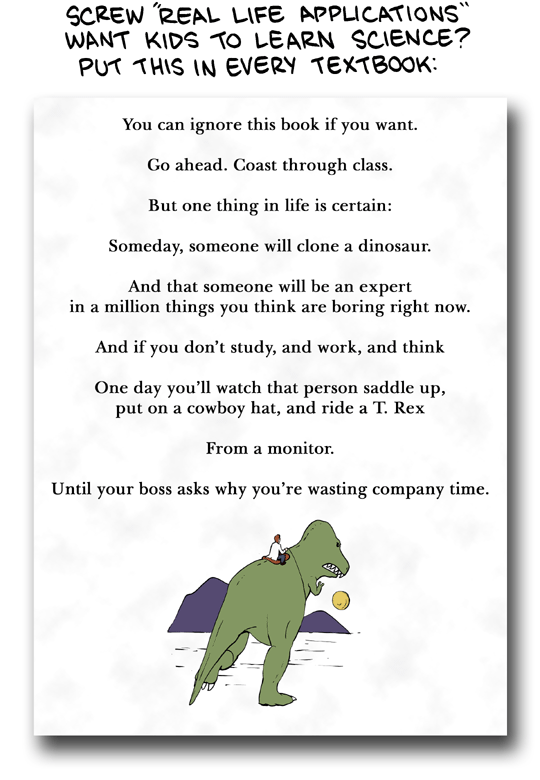The Cyberspace Open is a pretty cool contest, but there seems to be a gap between what they say they want, and what they actually want. The rules are evolving as the organizers have been moving from rewarding high-speed output to giving writers the time they need to create something more memorable (and marketable).
I’ve done the contest a couple of times now, and I’ve seen what wins and where I consistently fall short.
Four categories of scoring? Not… so much.
One of the things emphasized is that you are scored in four different categories. “Originality is 25% of your score,” they say. When you get your scene back, you get a breakdown of how many points you get in each category. Last time, out of hundreds of scores I checked, NONE had a difference of more than two points between categories. You would expect some entries to be wildly creative but very poorly executed, and for the scores to reflect that. Instead, it seems the judges arrive at a gut-feeling score and then divvy up the points fairly evenly between categories.
Don’t worry so much about the one-scene rule.
According to the rules, you’re supposed to submit a single scene. Part of the difficulty with this edict is that a “scene” is a technical movie-making unit, not a storytelling unit. They soften the rule to say that if your “scene” continues between rooms of a house during the course of a conversation, that’s ok. (Technically, every time the scenery changes, it’s a new scene. Changing rooms is a new scene.)
I’m all for this relaxed interpretation. How I would write the rule is, ‘continuous action that cannot be interrupted by cutting to another scene with different characters’. That lets you move your action, but keeps the “scene” as a fundamental storytelling unit.
However, even by that definition, two of the three top finalists last time had multiple scenes. One of the finalists used a brief scene at the start to establish the story, while another jumped scenes (and skipped ahead a couple of hours) halfway through the action. So it would seem the one-scene rule is not enforced at all.
Tell the Whole Story
The contest clearly states that they want a single scene that is part of a larger story. They don’t want a short film. The prompt they give is for a key moment in the arc of a story already under way. The thing is, judges can appreciate the scene more if they have an understanding of the context. Last year’s winner had an extra, short scene at the start with no other purpose than to supply context. One of the first-round winners last year included an extra little scene at the end that provided closure. In both cases the judges rewarded writers for breaking the letter of the law. Both of the other finalists last year had as-you-know-Bob-style dialog to provide context. fuego was specifically chided for not including more backstory in his scene.
You know? That’s OK with me. I think of my first (losing) entry and the really cool car stunt that happened immediately after the scene I submitted. I should have included it, even though it was technically another scene. My most recent (losing) entry could have benefitted from more context as well, but it also needed…
Action!
This is my mantra this time: make every moment crackle. I honestly thought I had that last time, but it was a verbal confrontation (they said they wanted dialog) and without a better understanding of the characters it failed to sparkle. If my dialog had been combined with bloodshed, things might have been much different.
Make every phrase one that could go into the movie trailer, every motion filled with peril. All the other rules and guidelines above take a backseat to this simple axiom. Whatever they say they want, whatever restrictions they impose, all will be forgiven if you write a taut scene with intensity – and it has to stand on its own. Of course the judges couldn’t see the tension between my characters since much of it was based on things that had come before.
Three to Five Pages
While the text on the Web site sounds flexible, they’re really hardcore about this now. Five pages and one line was not acceptable last time around.
Don’t lose on a technicality
As much as it sucks to get a low score, it would suck even more to get zero points because you didn’t submit your work correctly. There are things you can do before the contest that will allow you to save time and worry when submission time comes around.
You must submit your entry in a document named in a particular way, with specific formatting and a cover page with the proper information. Why wait until the last minute, when you’re tweaking the last few words as the clock ticks down? Go ahead and make the document now. Set up the formatting. Name it according to the submission rules. Write the cover page. Check it all twice. Now you’ve got all the ticky-tack stuff out of the way and when minutes count you can focus on the work, not the submission.
Have Fun!
I don’t participate in this contest with dreams of megabucks movie producers knocking on my door, I do it because it’s a challenge that appeals to me on a fundamental level and I’ve learned a lot from my previous failures. I like sharing my output here and getting feedback.
There’s another reason to have fun: It shows in the work. If you’re smiling while you’re typing, chances are the judge will be smiling while reading. Give it your best go, but have a good time and let your own quirks show through.
Just so long as you don’t push me out of the second round!
 5
5
Sharing improves humanity:


